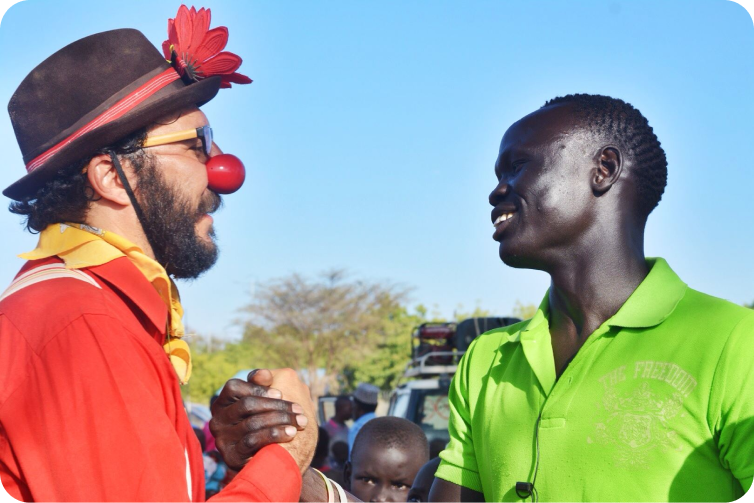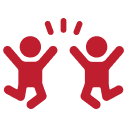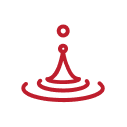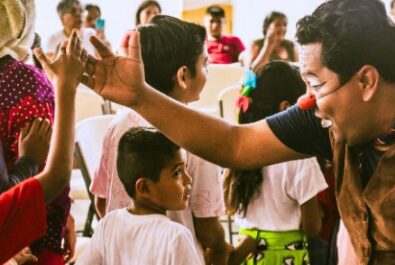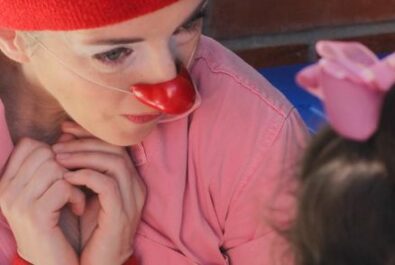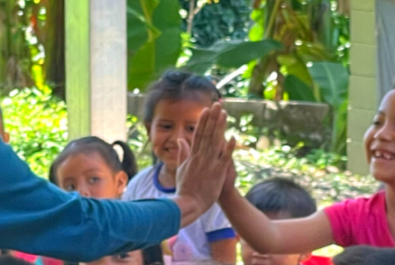Check out our April 20-28 tour in the Bay Area of the United States!
Our Approach
CWB shows are adaptable, trauma-informed, and high-quality. (Oh, and they’re pretty hilarious, too!)
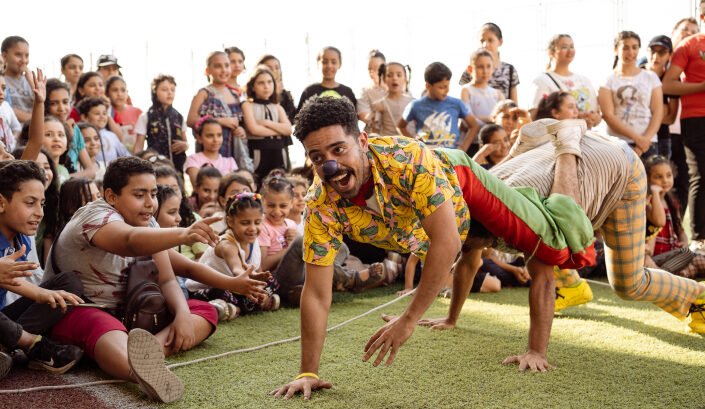
What Happens at a CWB Show?
- Step 1: A Parade!
- Step 2: A Show!
- Step 3: Workshops!
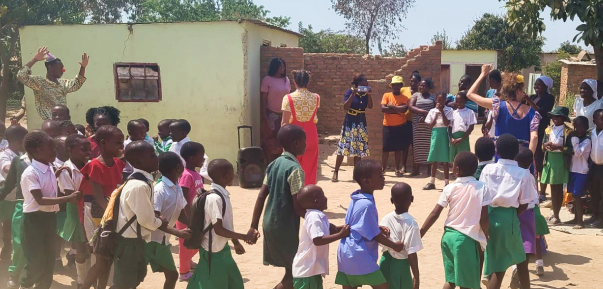
Hear the Clowns & Join ‘Em (...or Don’t!)
How would you feel if a bunch of clowns showed up unannounced to your backyard? Pretty weird, right?
We often start a show with a parade so that people have a chance to see us and decide whether or not they want to come see the show. No one is ever forced or obligated — attendance and participation are always audience-led!
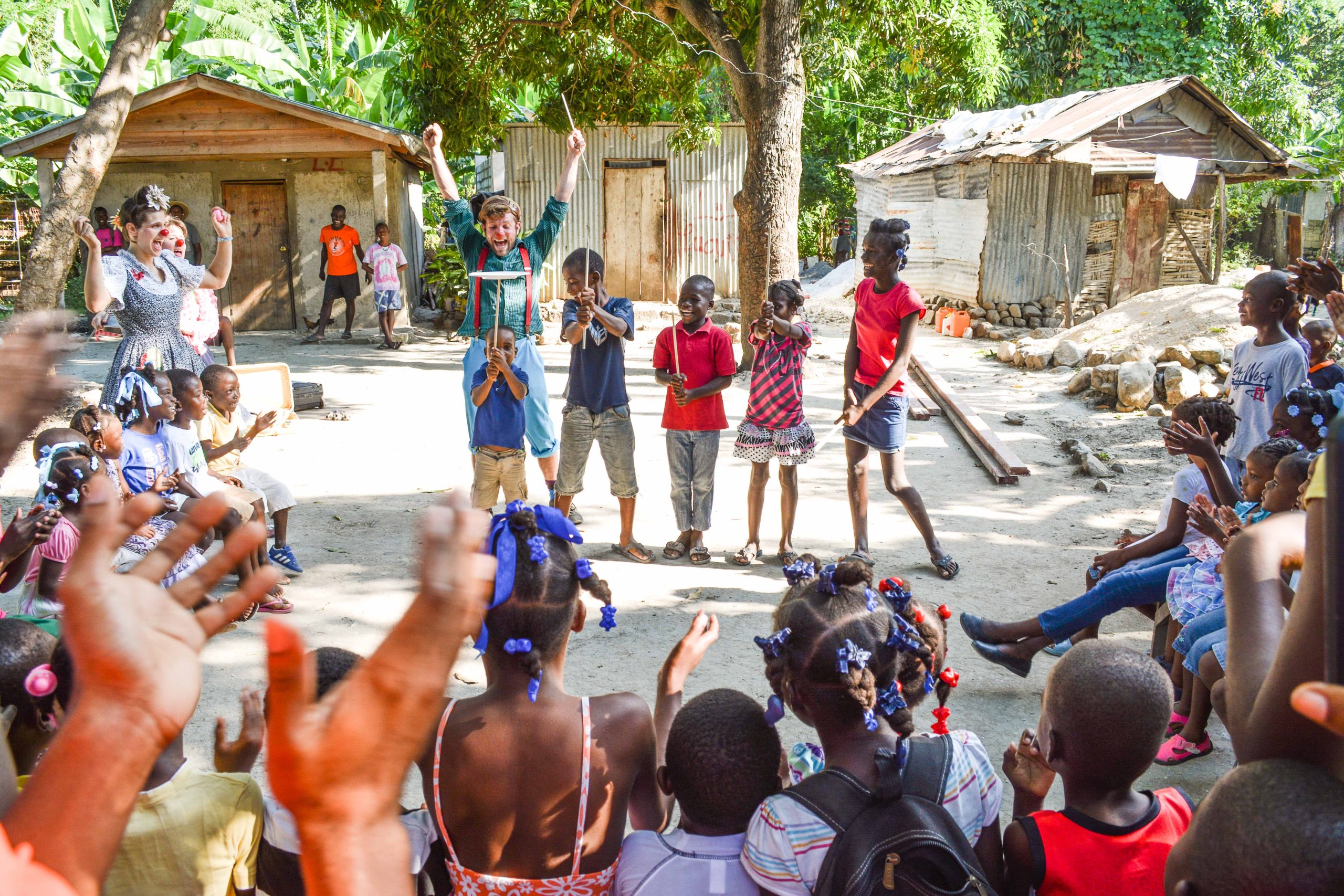
"Step Right Up, Step Right Up!"
And then the show begins! Not your typical circus performance or dazzling acrobatic delights, either. We flip the script — inviting kids from the audience to join us on stage as the undeniable stars of the show.
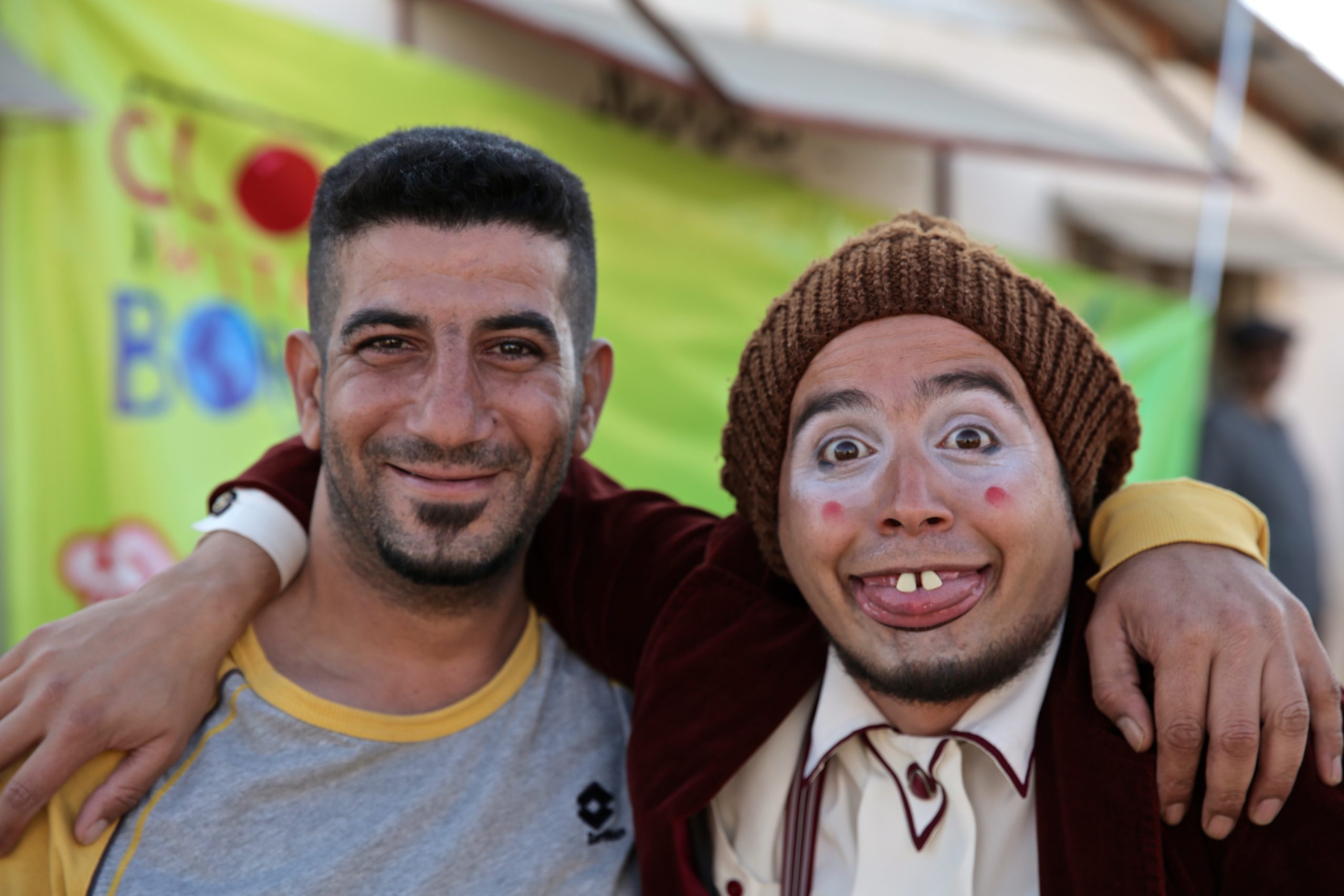
We often wrap up by offering workshops for professional artists looking to deepen their skills as well as for aid workers, teachers, and first responders. Not only for cultural and artistic exchange, these workshops help build community resilience long after we leave.
We Go Where We’re Invited
A critical part of our approach is only going where we’re invited. We won’t ever show up at a random place and expect people to laugh with us. We work closely with local partners who know the community and are able to evaluate 1) whether their basic needs are met and 2) whether laughter would be welcome.
